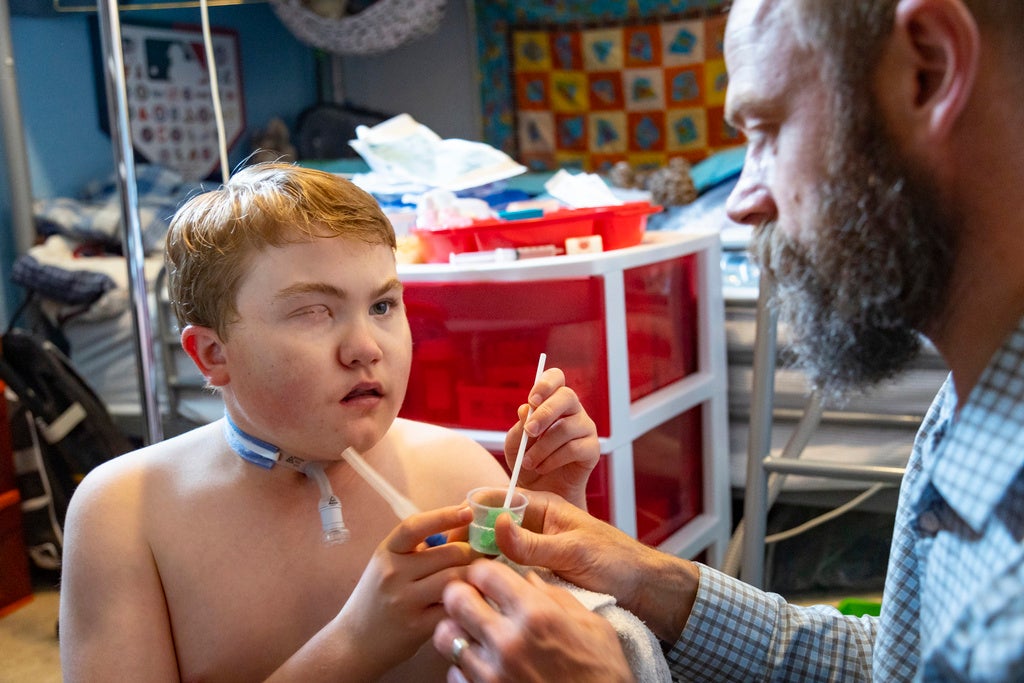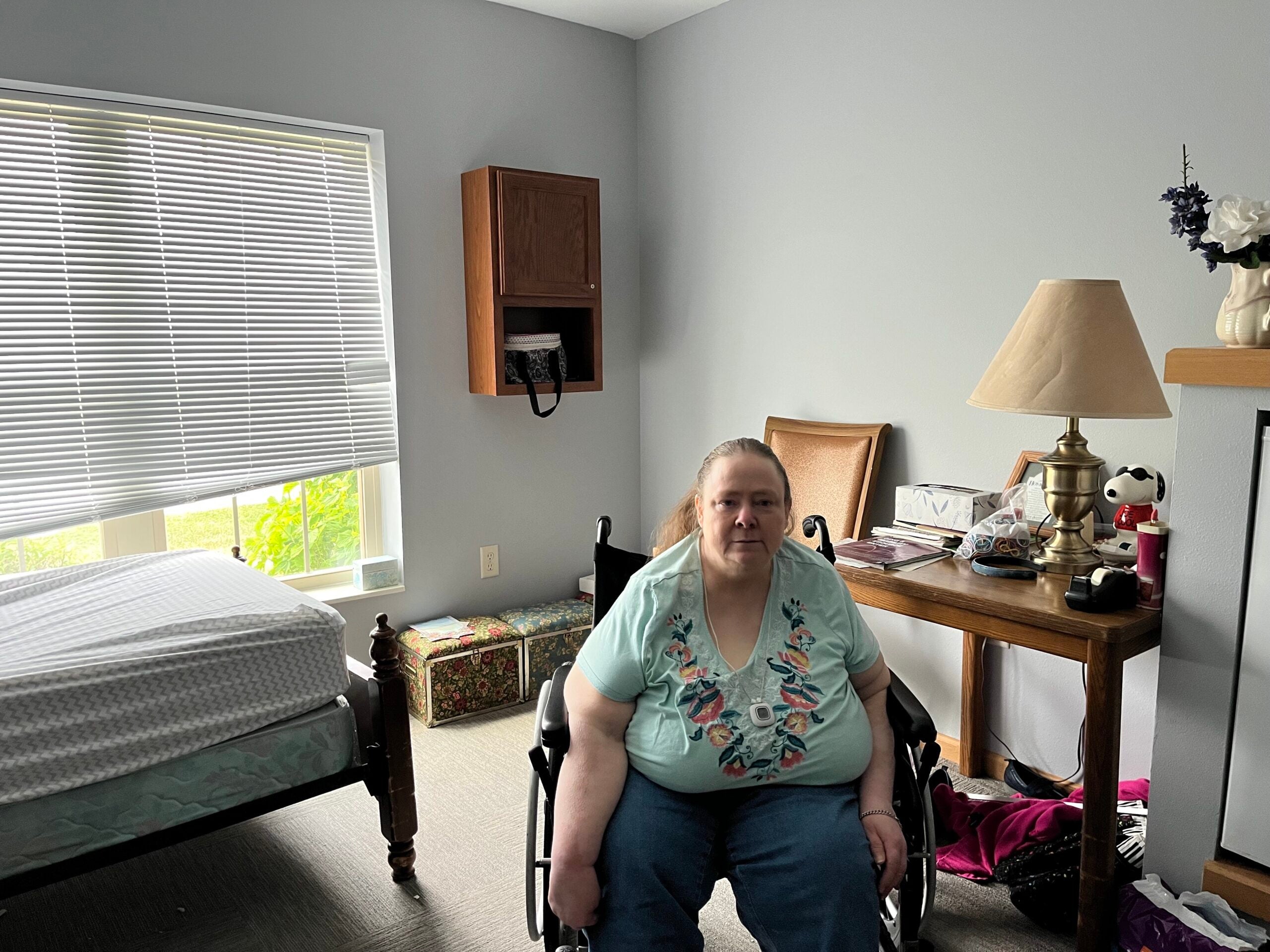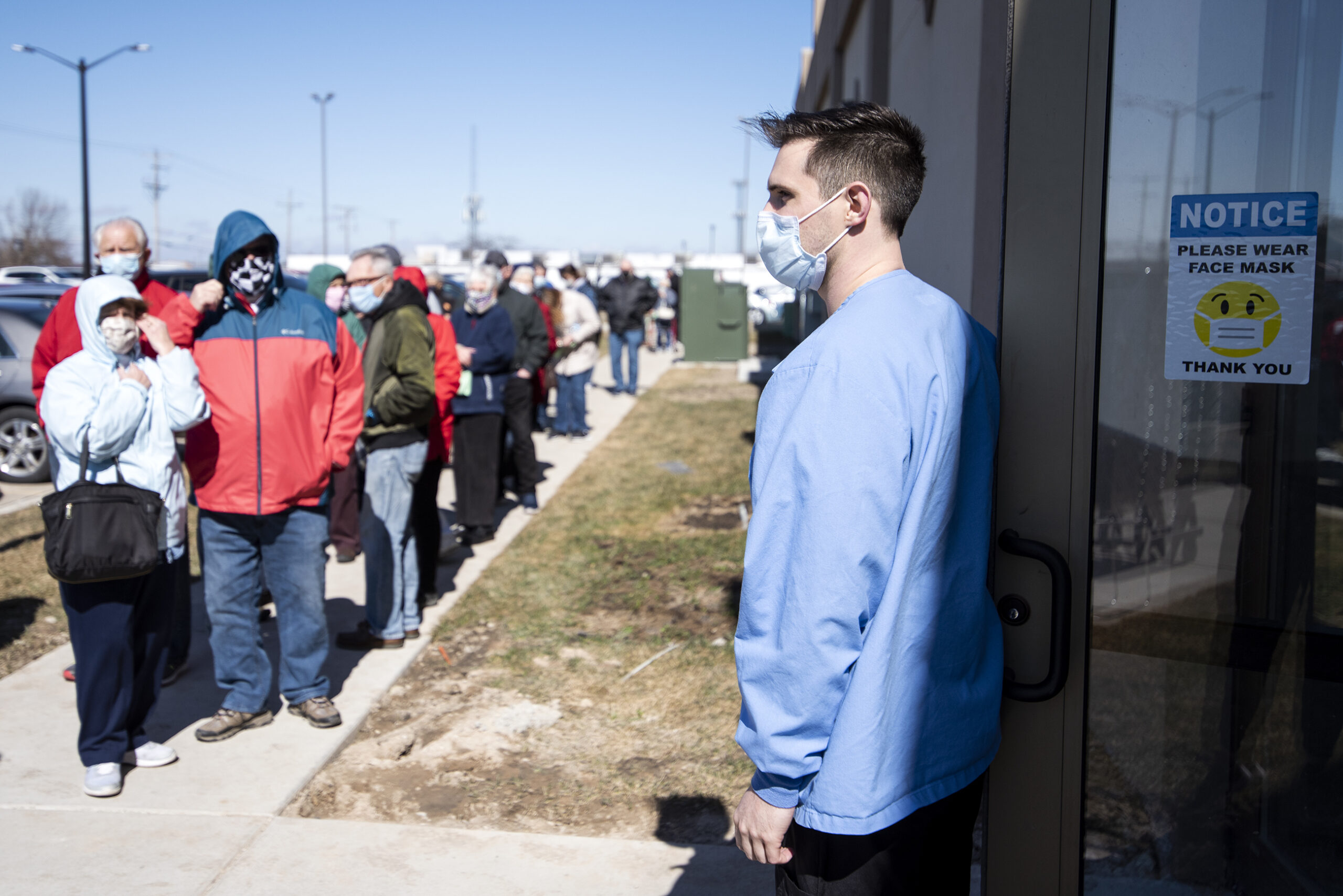The Wisconsin Department of Health Services is holding a series of meetings for local communities to discuss the best practices for treating dementia.
The meetings will specifically focus on the guiding principles for dementia care that the DHS recently released as part of Dementia-Capable Wisconsin, an initiative that aims to improve care throughout the state. The principles are not only designed for those with the disease and their caregivers, but also the community at large.
At one meeting in Madison last week, Portage Mayor Bill Tierney talked about “memory cafes,” places where those with dementia can socialize.
Stay informed on the latest news
Sign up for WPR’s email newsletter.
“That was our first real big step in Portage,” said Tierney. “Every fourth Wednesday, we hold a memory cafe at the Portage library and it’s been phenomenally successful. I just stopped (by), and the group continues to grow. And now there are many memory cafes throughout this part of the state.”
Pharmacists also talked about doing memory screenings for customers, delivering medication, and managing prescriptions for seniors so they’d be taken properly. State health officials discussed progress in reducing the use of antipsychotics for patients who may be difficult to control.
In a report last year, the Centers for Medicare & Medicaid Services ranked Wisconsin fourth-lowest in the nation in the use of antipsychotic medications in nursing home residents. Overall, Wisconsin’s nursing home resident use of antipsychotics is 14.6 percent compared to the national average of 19.4 percent.
The next DHS meeting will take place Tuesday in Appleton.
Wisconsin Public Radio, © Copyright 2024, Board of Regents of the University of Wisconsin System and Wisconsin Educational Communications Board.






